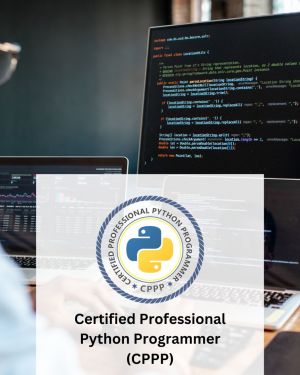Course Overview
The Certified Professional Trainer (CPT)® is an international, vendor-neutral certification designed for individuals aiming to become highly effective trainers. This E-Learning course covers the essential skills for training delivery, focusing on:
-
Preparation and program design
-
Presentation, facilitation, and communication skills
-
Engaging and motivating learners in both classroom and virtual environments
-
Evaluation techniques to measure learning outcomes
The course emphasizes practical application, allowing trainers to design and deliver sessions that are interactive, engaging, and result-oriented. CPT provides the knowledge and confidence to create impactful training programs, ensuring participants learn effectively and enjoy the process.
Exam Information
-
Exam Pattern: 80 Multiple Choice Questions (MCQs) – 80% required to pass (64/80 correct).
-
Exam Duration: 90 Minutes (1 hour 30 minutes).
-
Exam Format: Non-proctored, available anytime within an 8-month validity period.
-
Includes 2 exam attempts per voucher.
-
If unsuccessful after 2 attempts, candidates may purchase a new voucher for 2 additional attempts.
-
Note: A voucher is not valid for a second attempt if the candidate passes on the first attempt.
-
-
Certification Validity: Lifetime
Course Outline
Module 1 – Survival Skills for the New Trainer
-
What makes a good trainer?
-
Personal and professional best
-
Assertiveness, listening, and questioning skills
-
Connecting with people & defusing difficult participants
-
Essentials for success and trainer do’s/don’ts
Module 2 – The Practical Trainer
-
Defining successful training programs
-
Adult learning principles & learning cycles
-
Style assessment (introvert/extrovert)
-
Training process: planning, methods, designing sequences
-
Presentation skills, games, and setting the climate
-
Dealing with difficult trainees & evaluation techniques
-
Mock training presentations for peer review
Module 3 – Advanced Skills for the Practical Trainer
-
Accommodating learning preferences
-
Planning workshops & preparing visual aids
-
Effective communication & questioning techniques
-
Kirkpatrick’s evaluation levels
-
Training in various forums including virtual learning
-
Stress management & handling challenging situations
Module 4 – Developing a Training Program
-
Program design, needs assessment & instructional systems design models
-
Creating training content, supporting materials, and proposals
-
Choosing openings, energizers, and assessment tools
-
Testing the program & building rapport with learners
Target Audience
-
Trainers and presenters from all industries aiming to improve presentation and facilitation skills
-
Experienced trainers delivering live or virtual content
-
Training specialists, learning facilitators, master trainers, educators, and managers involved in training delivery








